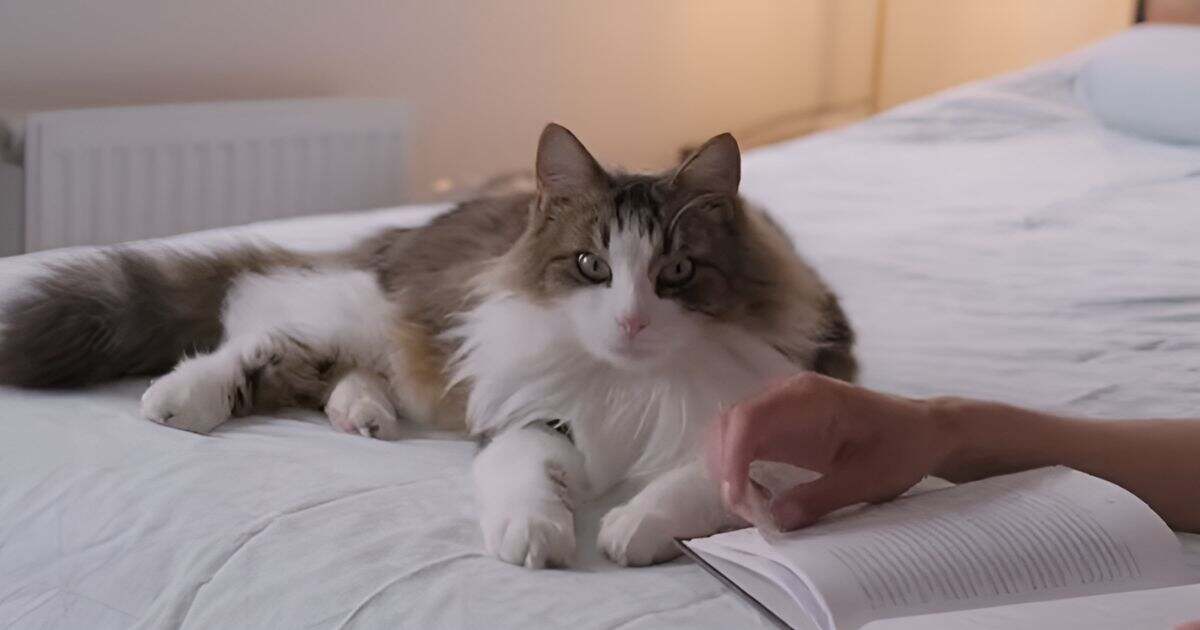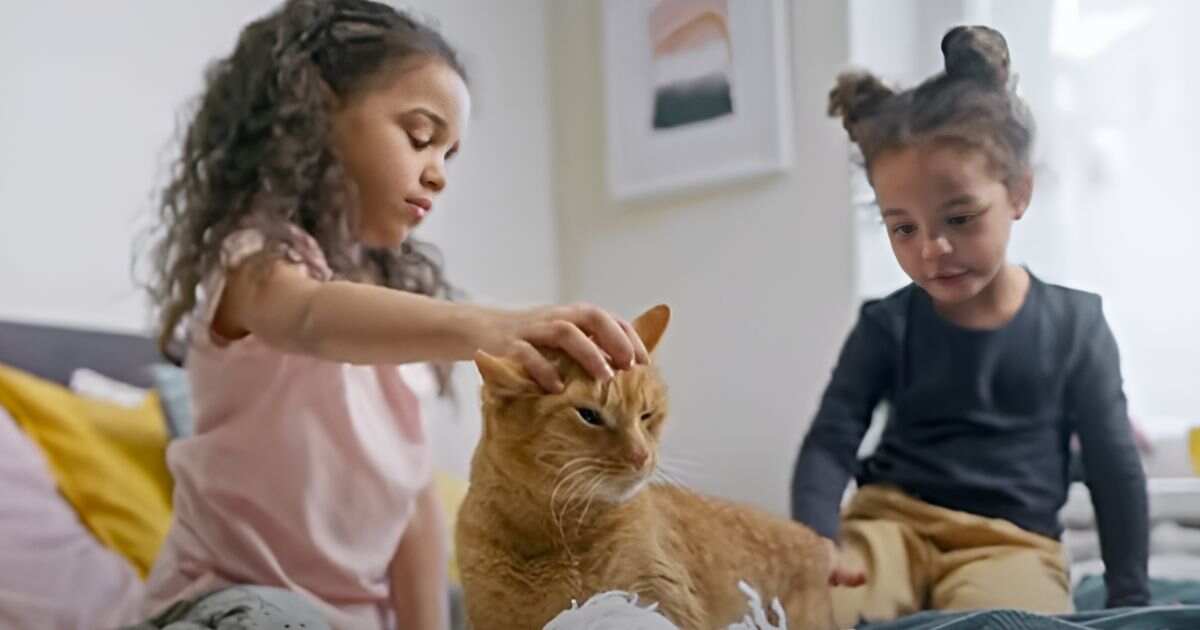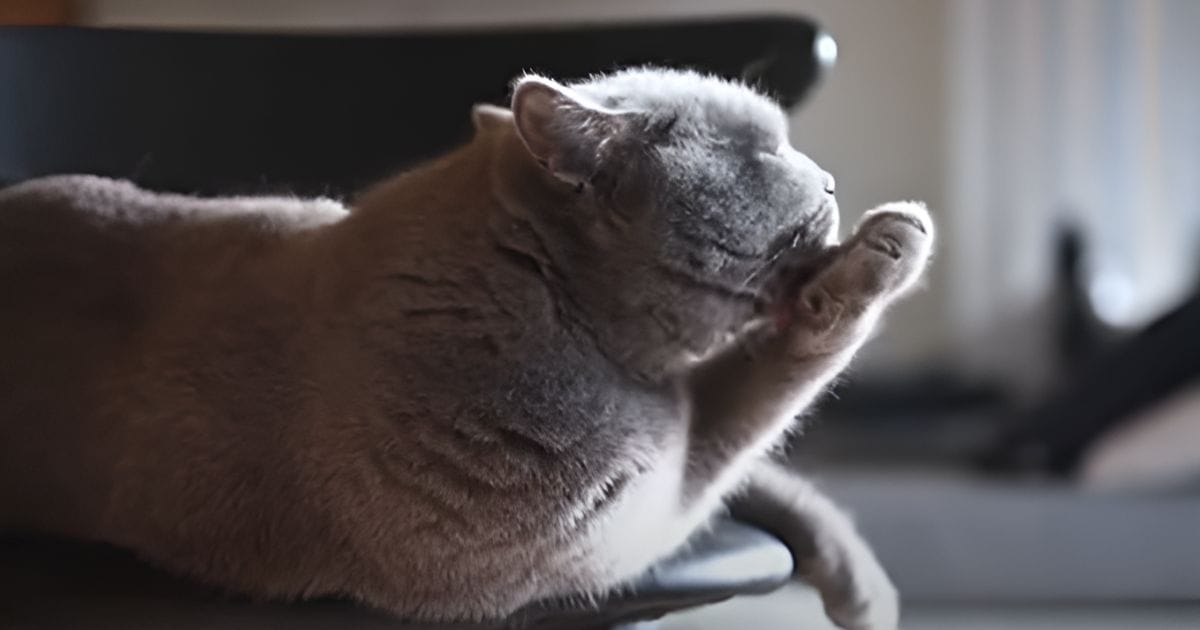As a cat owner, you might have wondered why your cat licks you. Why Does My Cat Lick Me? This behavior can be both sweet and confusing.
In this article, Why Does My Cat Lick Me? we’ll explore ten possible reasons behind your cat’s licking behavior, provide tips to manage or respond to it, and offer insights into understanding your cat’s body language.

1. Affection and Bonding
Cats often lick their owners as a sign of love and to strengthen their bond. This behavior is similar to how they groom themselves or other cats, showing that they consider you part of their family.
2. Grooming Behavior
Licking is a natural grooming behavior for cats. When your cat licks you, they might be trying to groom you, just as they would groom themselves or other cats.
3. Marking Territory
Cats have scent glands in their tongues, and licking can be a way for them to mark you with their scent. This behavior helps them feel safe and reinforces their territory.
4. Seeking Attention
Cats may lick you to get your attention. They might be trying to tell you that they want to play, be fed, or simply want you to focus on them.
5. Stress Relief
Licking can be a self-soothing behavior for cats. If your cat is feeling stressed or anxious, they might lick you to calm themselves down.
6. Taste and Texture
Your cat might be attracted to the taste or texture of your skin. This could be due to sweat, lotion, or other substances on your skin that they find appealing.
7. Play Behavior
Some cats engage in play behavior that includes licking and biting. This can be a way for them to interact with you, mimicking the way they play with other cats.
8. Health Issues
In some cases, too much licking can be a sign of underlying health issues. If your cat’s licking behavior is persistent or concerning, it’s important to consult a veterinarian.
9. Habit
Licking can become a habit for some cats, especially if it has been reinforced by positive responses from their owners.
10. Social Grooming
Cats engage in social grooming with other cats as a way to strengthen their social bonds. When your cat licks you, they might be treating you as part of their social group.

Tips to Manage or Respond to Licking Behavior
Recognize Signs of Overstimulation: Pay attention to your cat’s body language. Signs of overstimulation include twitching tails, flattened ears, and wide pupils. If you notice these signs, stop petting your cat to prevent a bite.
Provide Enrichment
Ensure your cat has plenty of toys, scratching posts, and interactive playtime to keep them mentally and physically stimulated. This can help reduce stress and prevent attention-seeking behavior.
Set Boundaries
If your cat tends to lick too much, gently set boundaries by stopping the interaction when they start to lick. This can help them understand that too much licking is not acceptable.
Positive Reinforcement
\Reward your cat with treats and praise when they show good behavior. This can help reinforce positive interactions and reduce too much licking.
Consult a Veterinarian
If your cat’s licking behavior is persistent or concerning, consult a veterinarian. They can rule out any underlying health issues and guide managing the behavior.
In my own experience, my cat Whiskers used to lick my hand frequently. At first, I found it sweet, but it became too much over time. I realized that Whiskers was often seeking attention or feeling stressed.
By providing more toys and interactive playtime, I was able to reduce his licking behavior. Setting boundaries and using positive reinforcement also helped in managing his behavior.
Understanding Cat Body Language
Understanding your cat’s body language is crucial in preventing and managing licking behavior. Here are some key signs to look for:
- Relaxed Posture: A relaxed cat will have a loose body, with ears facing forward and eyes half-closed. This indicates that they are comfortable and content.
- Tense Body: A tense body, with ears flattened and pupils wide, indicates that your cat is feeling stressed or overstimulated. It’s best to give them space in this state.
- Tail Movements: A twitching or lashing tail can be a sign of irritation or excitement. Pay attention to your cat’s tail movements to gauge their mood.

Expert Advice and Insights
Experts agree that understanding and respecting your cat’s boundaries is essential in preventing too much licking behavior. Jackson Galaxy, a well-known cat behaviorist, emphasizes the importance of creating a safe and stimulating environment for your cat.
Providing enrichment, setting boundaries, and using positive reinforcement can help manage and reduce unwanted behavior.
Read More: Why Does My Cat Lick and Bite Me? Discover the Reasons
FAQs – Why Does My Cat Lick Me? 10 Surprising Reasons Explained
Q1. Why does my cat lick me?
A: Cats may lick you as a way of showing love, grooming, marking territory, seeking attention, relieving stress, or due to taste and texture, play behavior, health issues, habit, or social grooming.
Q2. How can I prevent my cat from licking me too much?
A: Recognize signs of overstimulation, provide enrichment, set boundaries, use positive reinforcement, and consult a veterinarian if needed.
Q3. What are the signs of overstimulation in cats?
A: Signs of overstimulation include twitching tails, flattened ears, and wide pupils.
Q4. How can I understand my cat’s body language?
A: Pay attention to their posture, tail movements, and ear positions to gauge their mood and comfort level.
Final Thoughts
In conclusion, understanding why your cat licks can help you manage and respond to this behavior. You can create a harmonious and happy relationship with your feline friend by recognizing signs of overstimulation, providing enrichment, setting boundaries, and using positive reinforcement.